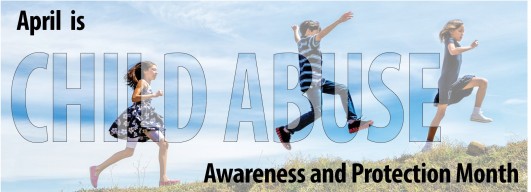April 5, 2017 // Special
April is Child Abuse Awareness and Protection Month
Ten safety lessons to teach your child
Parents, as your children grow and progress through school, they also embark on increasingly greater independence. They spend more time away from home and less time under your watchful eye. For their safety, teach your children these lessons in right relationships and personal safety.
Trust your feelings
God created us to experience emotions for a reason. When we are faced with danger we experience fear, preparing us to fight or flee. We experience anxiety or apprehension at times, as a precursor, warning us in advance of pending danger. Teaching your child to notice and respond to their feelings can help them avoid danger and help you know when to take a closer look at their surroundings.
Give and expect respect
As Catholic Christians, we are called to respect all human life. We are all part of God’s creation and deserving of dignity and respect. By your words, actions and interactions with your children, teach them that they are precious gifts from God. Make it clear that they are to respect others and that they are worthy of respect and dignity themselves.
Question motives
Children are born vulnerable. It is the job of adults, especially parents, to look out for the best interest of children. Make it clear to your children that, as their parents, you are the adults whom God has called to take primary care and responsibility for them. Teach your children to be wary of other adults who flood them with gifts and attention. Teach them to question “What’s up?” with an adult who wants to spend most of their time with them, hangs out with them and their friends instead of other adults, buys them alcohol or otherwise tempts them to break your rules. Teach your children to ask the questions, “What’s in it for them? … Do they have my best interest at heart?”
Avoid going alone
There is safety in numbers. Encourage your child to take a friend along when going out, to hang out in groups and to spend time in places where there are trusted adults to supervise or step in if they need help.
Know the rules for adult interaction
Teach your children what a healthy adult/child relationship is. Teach them what to expect from an adult and what to question. Encourage them to tell you if an adult is breaking the rules or pressuring them to break the rules.
Speak up
Teach your children to tell someone if they are feeling uncomfortable. Sometimes we think we are doing the right thing by keeping our feelings inside. But if someone is making us uncomfortable, we aren’t helping anyone by keeping our feelings to ourselves. If someone cares about us, they will want to know how we feel because they don’t want to do anything to hurt us. If they don’t care how we feel, then we need help getting out or dealing with that relationship.
Know your comfort zone
Everyone has a different comfort zone with regard to physical boundaries. That comfort zone can vary depending on the nature of our relationship with others. Teach your children to be aware of their comfort zone. Offer some suggestions about safe boundaries. Give them some ideas of what to do if someone crosses the line.
Be sure someone knows where you are
Reinforce to your children that it is your job to keep them safe, but you can’t protect them if you don’t know where they are. Remind them, “If no one knows where you are, there won’t be anyone to assist you in an emergency.” Show them through your words and actions that people who care about each other, even adults, look out for each other in this way.
Talk to your parents
Keep lines of communication open. Inquire about your child’s life. Listen actively as they speak. Teach them by listening, accepting and respecting their privacy, that they can tell you anything. Let them know that their safety is your top priority, but you can’t help them if they don’t tell you what is going on.
You have the right to say no
God created us, as human beings, with the ability to make independent behavioral choices. And as human beings, we don’t always make good choices. Teach your children that they have the right to set limits on others’ behavior if they are feeling unsafe. Help them decide if the behavior another individual is choosing to engage in is right for them. Reinforce to them that God, our creator, wants us to be safe. Teach your children when and how to say no.
Information provided by Elizabeth A. Heidt Kozisek, Safe Environment coordinator for the Diocese of Grand Island, Neb.
The best news. Delivered to your inbox.
Subscribe to our mailing list today.






